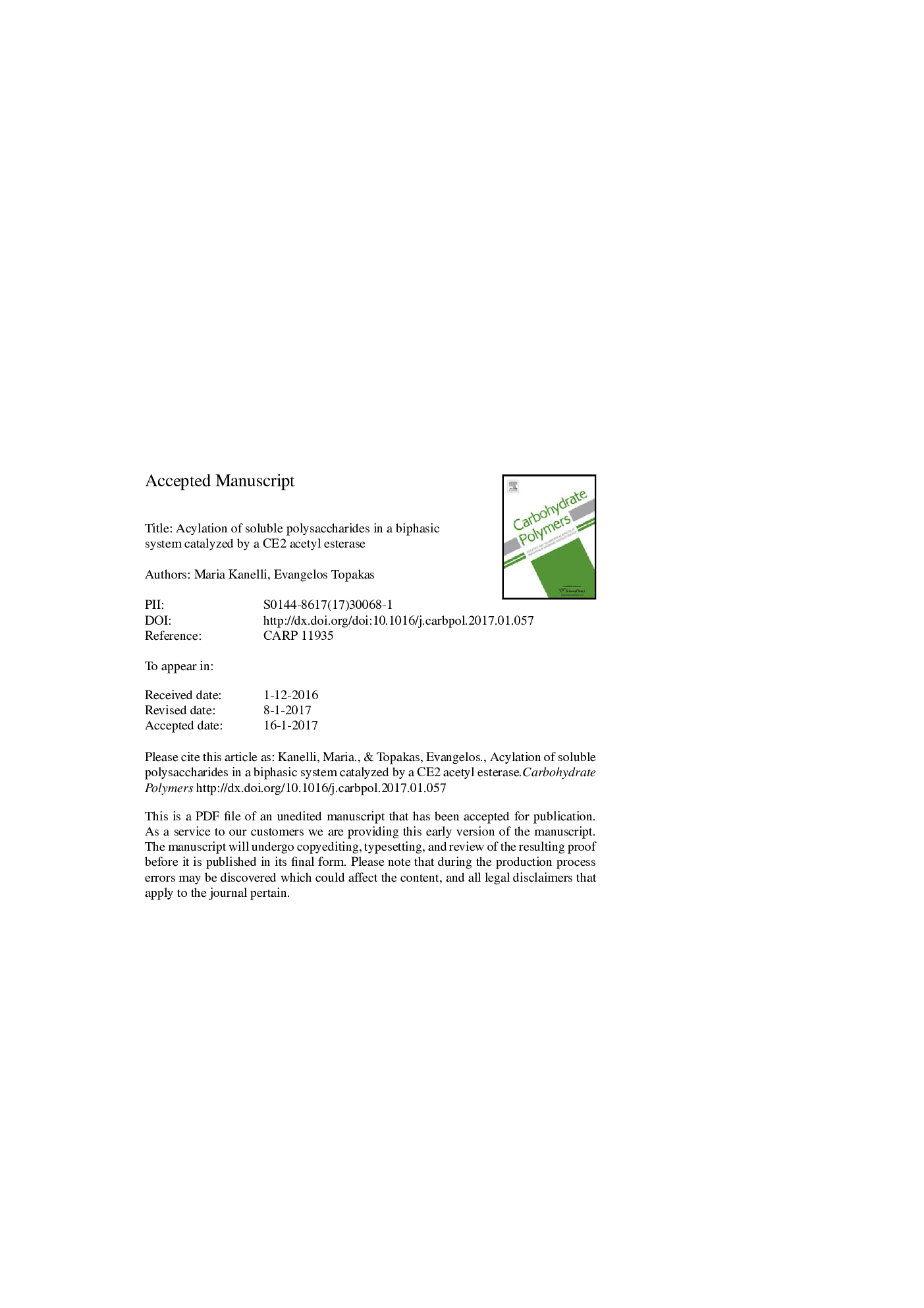| Article ID | Journal | Published Year | Pages | File Type |
|---|---|---|---|---|
| 5157044 | Carbohydrate Polymers | 2017 | 32 Pages |
Abstract
Within the last decade, acylated polysaccharides have drawn attention, since they find applications in numerous fields as biocompatible and biodegradable amphiphilic compounds. The ability of a CE2 acetyl esterase from Clostridium thermocellum to catalyze acyl transfer to β-glucan and manno-polysaccharides of significant interest was investigated. Initially, screening tests were conducted on aldohexose monosaccharides and disaccharides, exploiting the enzyme's strict regioselectivity at O-6 position. Modified monosaccharides acquired acylation yields from 11 up to 65%, showing preference for small chain acyl donors, while disaccharides exhibited conversion yields from 23 up to 58%, with preference to monoacylation. The transesterification reactions were carried out in two-phase mixtures consisted of water/vinyl esters. Acylation of polysaccharides were confirmed by TLC and FT-IR, while the degree of acylation was determined via an indirect method, estimating a range of acylation from 0.022 to 1.083 mmolacyl group*gpolysaccharideâ1 depending on the structure and composition of the target polysaccharide.
Related Topics
Physical Sciences and Engineering
Chemistry
Organic Chemistry
Authors
Maria Kanelli, Evangelos Topakas,
